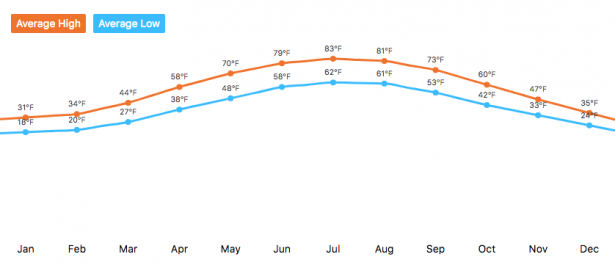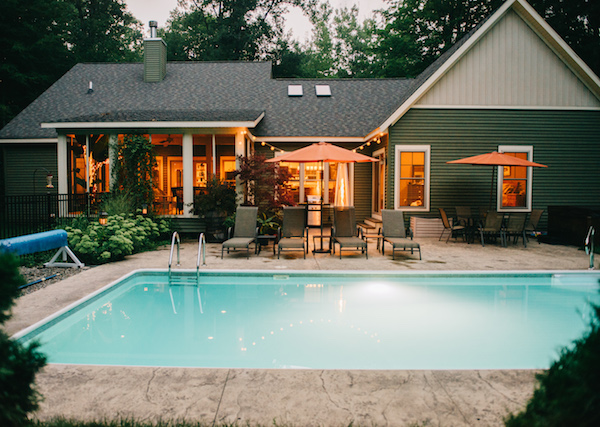The Right Time to Close Your Pool in Michigan
Summer is winding down and you might be wondering just how much time you have left before you’ll need to pack up your favorite inflatable raft and prepare the pool for winter. Closing your pool at the right time in Michigan is not as much about getting it done by a specific date, but rather about waiting for the air and water to cool to the right temperature.
From their years of pool service in West Michigan, our pool professionals will tell you: If temperatures are steady at 60 degrees and we’re well into September, it’s a good time to close your pool. But if it’s 75 degrees or warmer and it’s September, it’s too early!
Why? The chemicals that balance your pool water and prevent algae growth over the winter depend on cooler temperatures to do their job. If the chemicals are working hard in warmer temperatures, they could dissolve too quickly, and you’ll have a big mess to clean when opening your pool.

Average temperatures for Grand Rapids, MI. Source: The Weather Channel
You can see from the above graph that air temperatures in Grand Rapids settle around 60 degrees in October, generally making it a safe time to close your pool in West Michigan. Since temperatures can fluctuate from the average, make sure the weather is cooler for a few consecutive days before closing. The water temperature should also be around 60 degrees when you close your pool.
What to know before closing your pool
Here’s what you you should do before closing a pool for the winter:
Check for leaks in your pool.
Even the smallest leak can result in losing gallons and gallons of water per day…meaning LOTS of water lost over the seven months the pool will be closed. Fix any leaks before you close the pool so the situation doesn’t get worse over the winter.
Get your pool water tested to make sure it is balanced.
We recommend you bring a water sample into one of our 5 West Michigan locations, where we’ll test it for FREE! Besides being more accurate than home tests, our in-store tests also measure more properties of the water’s chemistry, such as calcium hardness. The right level of calcium hardness protects against damage due to corrosion or staining over the winter.
Balance your pool’s chemistry for winter as needed.
Make any adjustments necessary after getting your water tested, prior to closing your pool for the season.
Make sure your pool has the proper water level for closing.
Inground pools should be drained until the water is just below the skimmer opening. Above ground pools should also be drained to this level, unless an Aquador is installed on the skimmer. In that case, you’ll only have to drain the water to the lowest water level indicator on the skimmer face plate.
Get the proper winterizing chemicals.
We carry BioGuard’s Arctic Blue Winter Kit 12, which includes a shock treatment and algae protector and will winterize up to 12,000 gallons per kit. We also recommend BioGuard’s new Pool Closing Complete, which protects all types of pools against corrosion and scale through cooler off-season temperatures. It also helps prevent waterline buildup over the winter.
For videos on pool closing procedures, visit and subscribe to our YouTube page!
We can help with your pool closing!
Save yourself time and money by closing your pool at the right time and with the right process. If you’re unsure about a DIY pool closing, we can help. We will be offering free pool closing schools again this year. You can find dates and more information here.
If you don’t think you’ll have the time to close the pool yourself this year, or you’d just rather not deal with it, schedule a pool closing service with Zagers. We want to make sure you get your pool closed right the first time, because a good closing now means a good opening next year.
This article was originally published on August 16, 2011.
